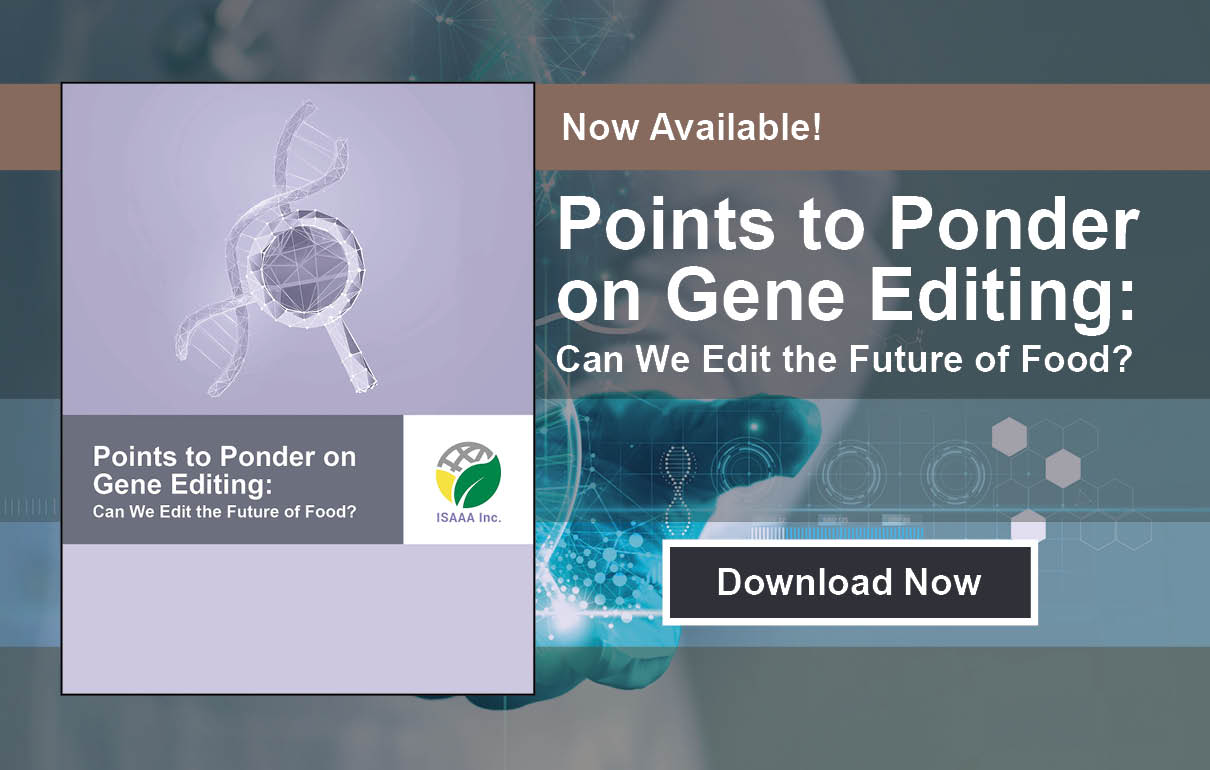Can We Edit the Future of Food?
| |
We pose this big question amidst a rapidly growing population, exponentially increasing demand for food, and a worsening climate crisis. The Food and Agriculture Organization of the United Nations (FAO) consistently calls for collective efforts to transform the agri-food system. Along with these transformations, all tools that can help achieve an increased food supply and improve nutrition must be harnessed.
With the contributions of gene editing to increasing yield, improving resistance to diseases and pest attacks, and biofortification of food crops, along with other enhancements, it is undeniable that this technology holds great promise in the future of food.
Like other emerging technologies, big questions are thrown towards gene editing, and these inquiries must be addressed to gain public understanding and confidence. Front-liners from the field were asked to tackle various facets of the technology and how each can contribute towards food security.
The highlights of their answers are tackled in the latest addition to the ISAAA Biotech Communication Series titled Points to Ponder on Gene Editing: Can We Edit the Future of Food? to provide stakeholders with critical insights to consider and eventually have evidence-based decisions on the adoption of gene editing. The full discussions were published in ISAAA Brief 56 Breaking Barriers with Breeding: A Primer on New Breeding Innovations for Food Security.

Dr. Diana Horvath of the 2Blades Foundation tackles TALEN as one of the powerful molecular tools available to improve plant breeding. The contributions of gene editing to animal production are presented by Drs. Diane Wray-Cahen, and Justin Bredlau from the U.S. Department of Agriculture. Regulations must also be aligned with the research and development of gene- edited plant and animal products, and this is discussed by Martin Lema from the National University of Quilmes, Argentina. Current developments and future prospects in Asia and Africa were featured by Dr. Gabriel O. Romero of the Philippine Seed Industry Association and ISAAA AfriCenters’ Dr. Margaret Karembu and Godfrey Ngure. Learnings in biotech communication are shared by ISAAA-BioTrust’s Dr. Mahaletchumy Arujanan. Lastly, the big question on gene editing’s impact on food security is answered by ISAAA Chair Dr. Paul Teng.
Continue reading the monograph for more information.
| Newer Post | Archive | Older Post |
Science Speaks is ISAAA Inc.'s official blog. Weekly blog articles, authored by ISAAA writers, partners, and invited contributors, aim to help share, disseminate, and promote scientific knowledge and its vital role in achieving global agricultural sustainability and development. Your support to Science Speaks will help us achieve this goal. You can help us by donating as little as $10.

